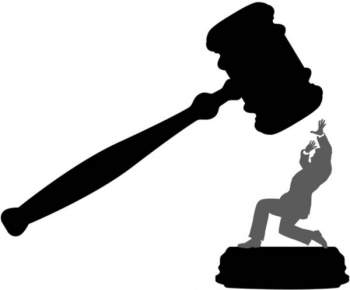
A Guide to Marijuana Charges in the United States

What are Marijuana Charges?
Marijuana charges are components of the criminal procedure undertaken in order to substantiate an individual suspect’s required appearance within a legal venue subsequent to their arrest for criminal concerning the usage of Marijuana; Marijuana charges furnished by law enforcement agencies within the United States of America are required, due to the fact that they serve as a legally-documented account of the participation of an individual suspect with regard to illegal substances classified as illegal drugs or controlled substances:
What is Marijuana?
Marijuana is a naturally occurring plant; the potent chemical Tetrahydrocannabinol (THC) found in Cannabis is considered to be the responsible substance latent within a Cannabis plant for the production of intoxicating effects resulting from Marijuana usage.
While Marijuana has been discovered to provide treatment benefits for several illnesses, misuse through unauthorized possession or usage is considered to be a criminal offense; currently, 17 States permit the use of authorized Medicinal Marijuana for eligible patients:
Marijuana charges primarily serve as an identification of illegal activity and events within which a suspect participated concerning the illegal substance Marijuana; the classification of these actions serve as not only gradients categorizing the events in question, but also as delineations between the various Marijuana charges in existence
Secondly, Marijuana charges serve to provide legal parameters existing in conjunction with the charges furnished by the arresting law enforcement agents; akin to the large majority of statutory legislation within the United States, the severity of Marijuana charges vary in accordance the degree of severity of the criminal activity undertaken
The Classification of Marijuana Charges under the Controlled Substance Act of 1970
Located in Title II of the Comprehensive Drug Abuse Prevention and Control Act, the Controlled Substance Act addresses and classifies the illegal usage, sales, and cultivation undertaken with regard to the wide range of individual substances considered to be illegal both in nature, as well as upon misuse or unauthorized possession.
Although Marijuana has been decriminalized in certain areas, Marijuana charges furnished by the CSA not only provide a legislative classification of the drug itself through its illegal and criminal misuse, but also the parameters within which prosecution concerning Marijuana required adherence. The following legislation is furnished with regard to Marijuana charges:
Schedule I Substance and Marijuana Charges
Marijuana charges are furnished in accordance to the classification of the drug as a ‘Schedule I Substance’; the ideology implemented within the identification of a Schedule I substance expresses the following requirements contingent upon its classification:
A Schedule I substance is considered to retain an increased risk for addiction and abuse; with regard to Marijuana charges, this risk exists in conjunction to the addictive properties inherent within the chemical makeup of Marijuana
A Schedule I substance is considered to be absent of any or all medical or productive usages; in contrast with certain illegal drugs, Marijuana is not considered to retain any medical or health benefits upon its usage
A Schedule I substance is considered to be absent of specified or identifiable terms, conditions, or guidelines with regard to safety measures concerning its usage – as a result, Schedule I substances are considered to retain high proclivities for overdose